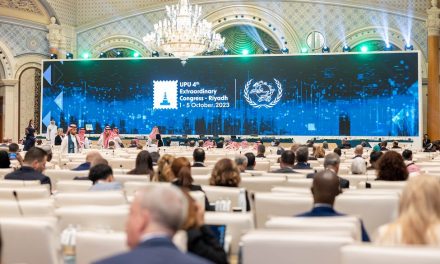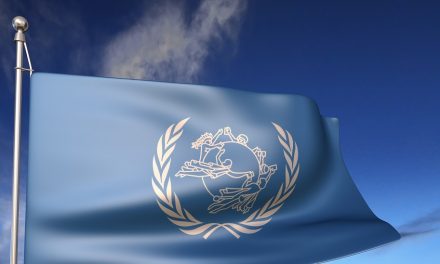
An insight into Postal Euromed
Earlier this year, The Postal Euromed General Assembly, held in Rome, saw the formal creation of the Postal Euromed union – a collection of Euro-Mediterranean based operators coming together in a bid to promote efficiency and growth across the region. Post&Parcel’s Caroline McGarr poses the questions to chairman of the Board, Dr Sherif Battisha, of Egypt Post, and secretary general, Stefano Gori, of Poste Italiane. Please provide our readers with some background on Postal Euromed. Where did the idea originate? Is it the relaunch of an existing organisation that now has Universal Postal Union (UPU) status?
“This is not the relaunch of an existing organisation. The Postal Euromed General Assembly, held in Rome, saw the formal creation of the union of postal operators in the region. It is the latest step of a process that was launched at the inaugural Euromed Postal Conference which took place in Marseille in 2007.
“It is the concrete result of a common effort, under the UPU umbrella, of a grouping covering 14 countries of the Euro-Mediterranean area to implement a shared policy for the postal sector, develop new technologies for a more efficient mail service, establish common technological platforms, and encourage closer collaboration in financial and communication services within the Mediterranean region.
“It should nevertheless be noted, that this postal initiative is the latest step of a broader Euro-Mediterranean dialogue which was initiated a long time ago, with the Barcelona declaration of 1995. The declaration established three strategic pillars of co-operation (political and security; economic and financial; social, cultural and human partnerships).
“Our postal union can significantly support the three pillars, not only concerning the development of business relationships, but also with reference to the principles of solidarity, dialogue and mutual support. It will work consistently with the objectives and mission of the UPU.
So what are the objectives of Postal Euromed? What do you hope to achieve?
“Postal Euromed represents an important platform for supporting and promoting forms of partnerships between Mediterranean countries in the logistics, technology and financial sectors.
“As postal operators, we have well-known and trusted brands, and thus we should leverage on this more and more, to contribute to the growth of this region (a population of 500m, and 12% of the World GDP). I promise that I will do my best to turn Euromed Postal into a catalyst of innovation and growth for the whole region.
“I am convinced that in the future we will look back at the Rome General Assembly and consider it as an historic milestone for our sector.”
How do you intend to improve money transfer services? What are the possibilities?
“Currently, postal operators in the region use two different money transfer platforms: one from the UPU, called IFS, and another one from Eurogiro, called ECI. We are working already with the UPU and Eurogiro with the objective to develop a bridge between these two systems that will enhance and improve cross-border payments.
“The G8 Summit of 2009 agreed on reducing the average cost of a remittance – from 10% to 5% – in five years. We intend to strongly commit ourselves to this achievement by providing cost efficient and transparent remittance solution across the area. The cost of sending remittances is still relatively high compared to the often low incomes of migrant workers and their families. Estimates by the World Bank indicate that the “5×5”cost reduction could generate a net increase in income for migrants and their families in the developing world by $15bn. This money could play a strategic role in the development of countries seeking to boost their economies, as well as in the Mediterranean region.
“We are already working to provide a relevant reduction in the cost of remittances, with the hope that our initiative will prove to be useful for the economic and financial development of the area.”
How do you plan to use Posts to improve trade development between small and medium-sized businesses? Will you be looking at something similar to the Exporta Fácil scheme developed by Correios, the Brazilian Post, and being rolled out to other Latin American countries?
“Every region and every country needs to operate in a globalised arena and faces the challenge of establishing and sustaining its position in the global marketplace. In that respect we think that SME development is the catalyst of regional economic development, especially in the Mediterranean region.
“Our objective is to improve the way postal operators work with customs to simplify the procedures involved in importing and exporting goods through the postal network. This is similar to the Exporta Fácil scheme developed by Correios.
“The Euromed Postal Network, as a very efficient instrument for financial inclusion. It can play a crucial role supporting SME’s by providing micro-financial, credit, saving, payment and insurance services. The direct mail service provided by postal operators will help to promote SME’s products.”
Tell us more about plans to establish a common platform for e-commerce? How do you see this working?
“Every operator has a logistic network for post and express – most have financial services, and more and more are developing digital services. These three elements are the pillars for the development of e-commerce.
“One of the objectives of our union is to work together to develop a common e-commerce platform wherein postal operators are well placed to play the role of trust house. This will promote e-commerce substantially, and decrease the market entry barrier for SME’s by helping them to reach their clients.”
What are Postal Euromed’s plans for the coming twelve months?
“The first step is to formally request UPU status. After that we want to expand our membership, develop partnerships with financial organisations (such as World Bank, Inframed, UPU Quality of Service Fund), and start to identify three/four concrete projects to launch by the end of 2011 (for example, the implementation of the bridge between IFS and ECI to reduce the cost of remittances), and defining a three-year strategic plan to be presented to the next General Assembly, taking place in Malta later this year.”














How is this new postal union handling the situation in Syria?